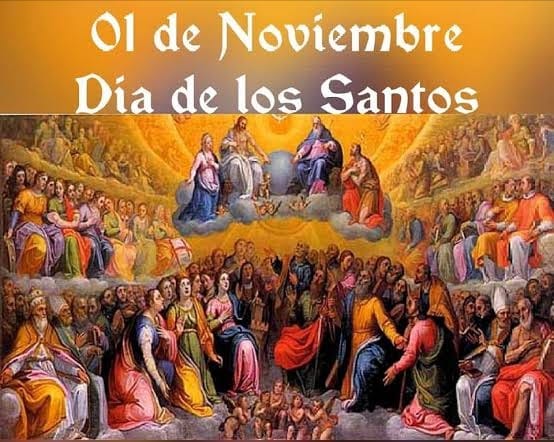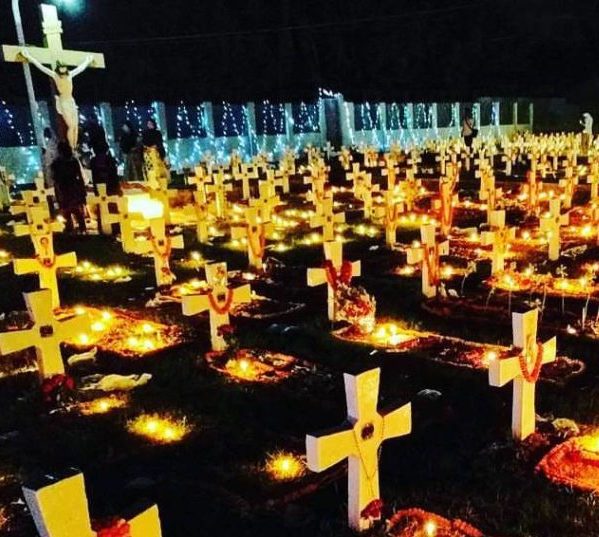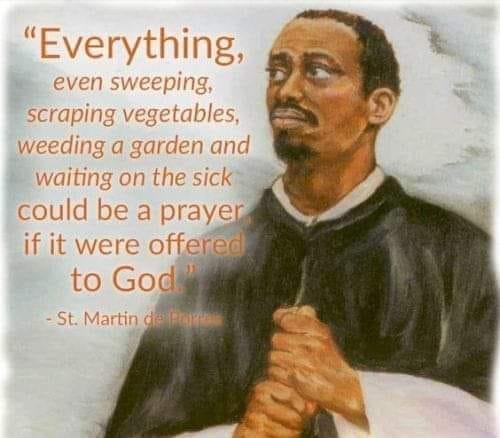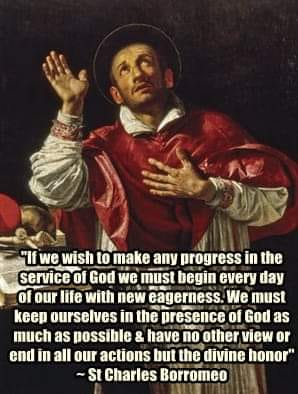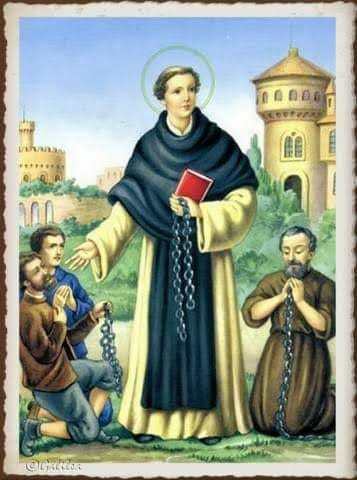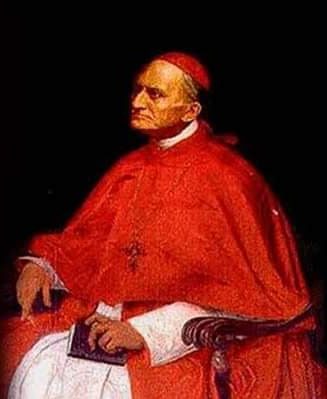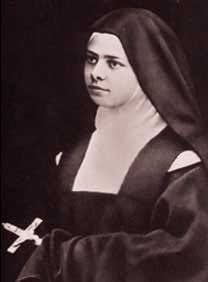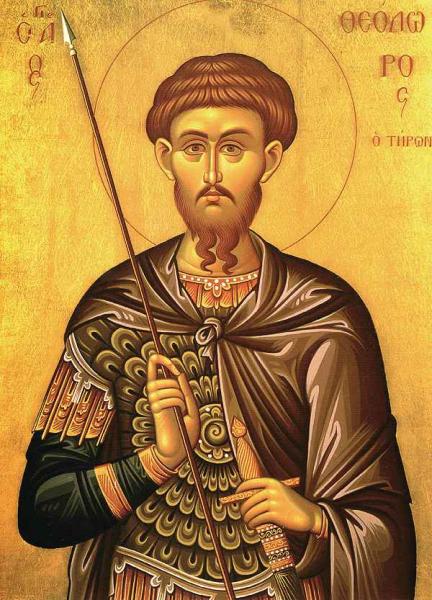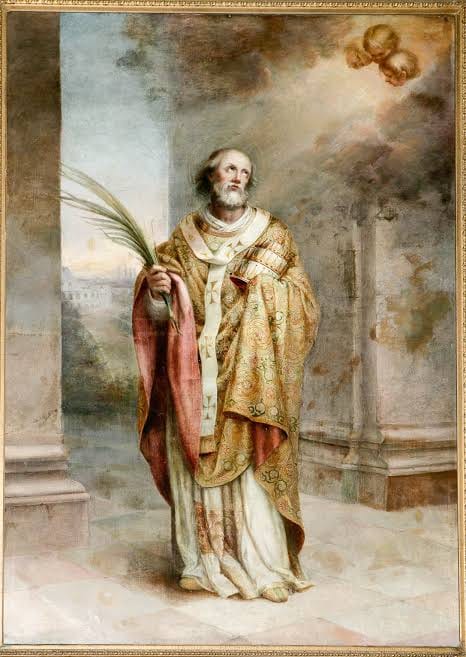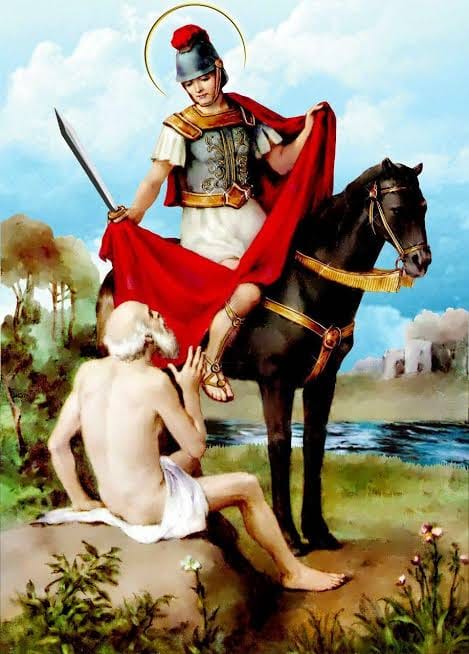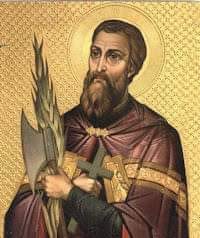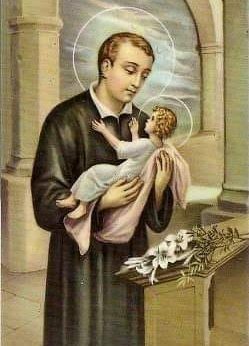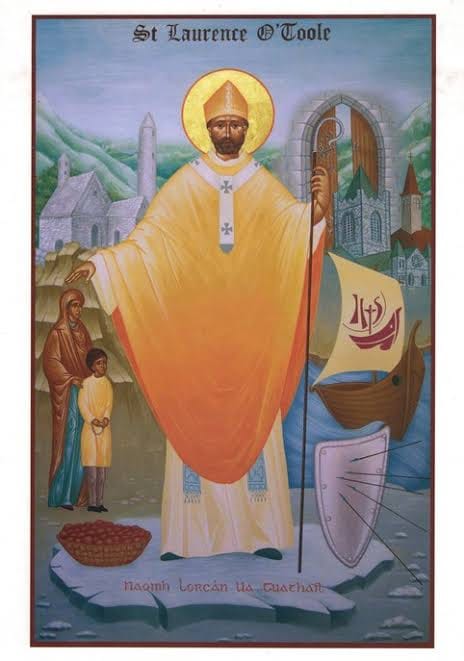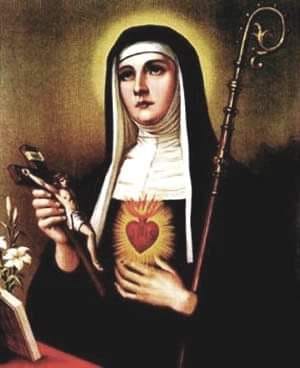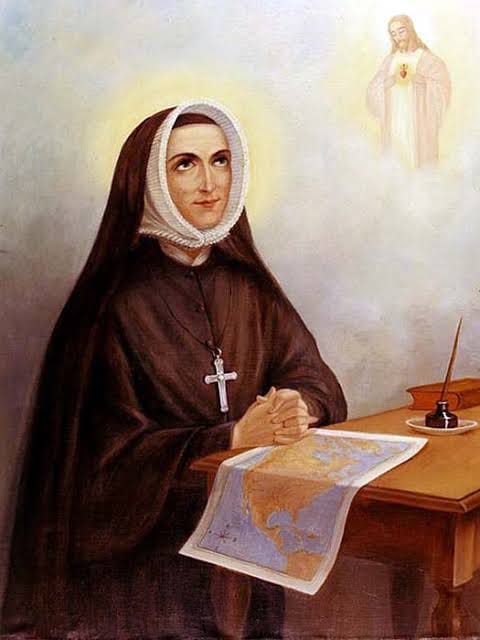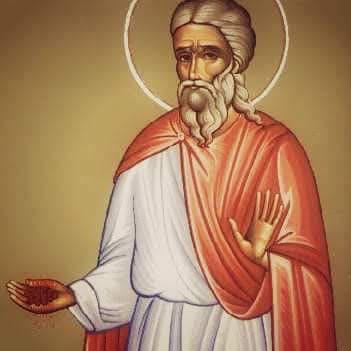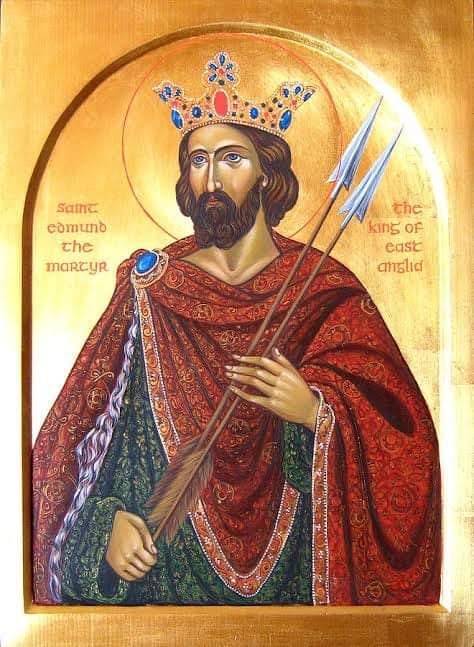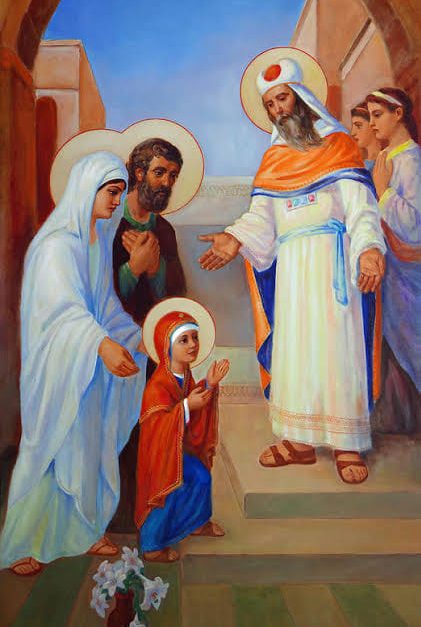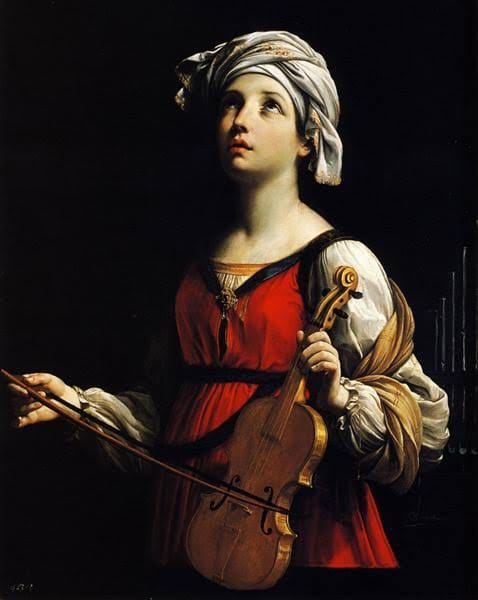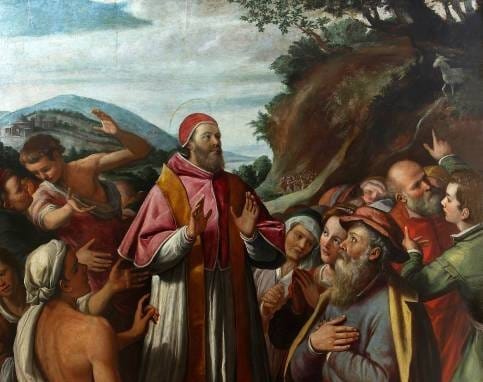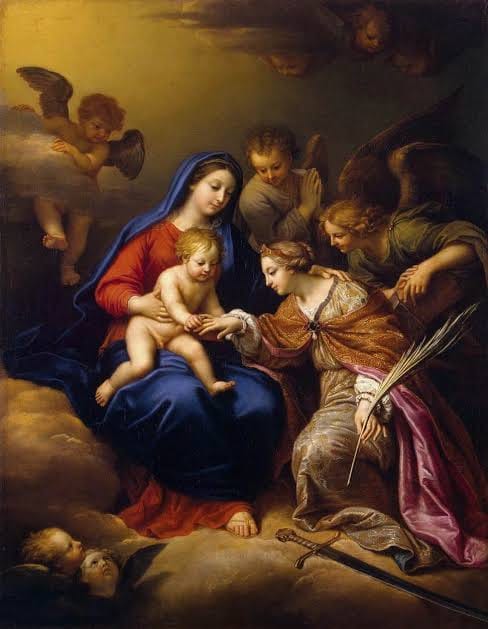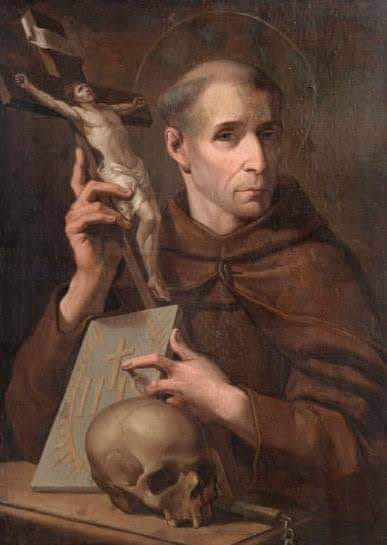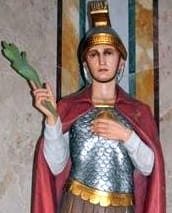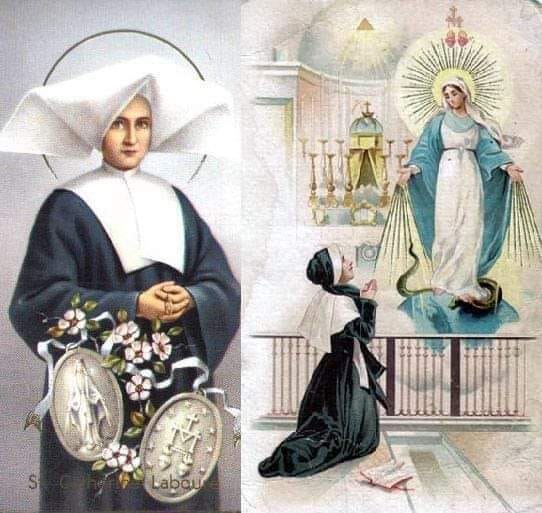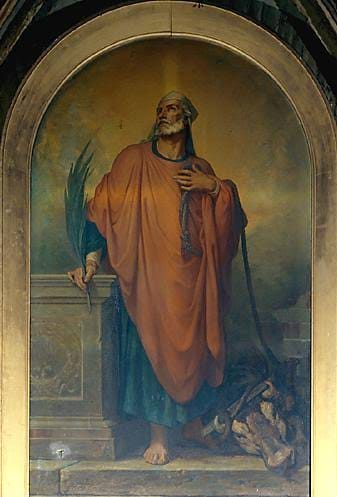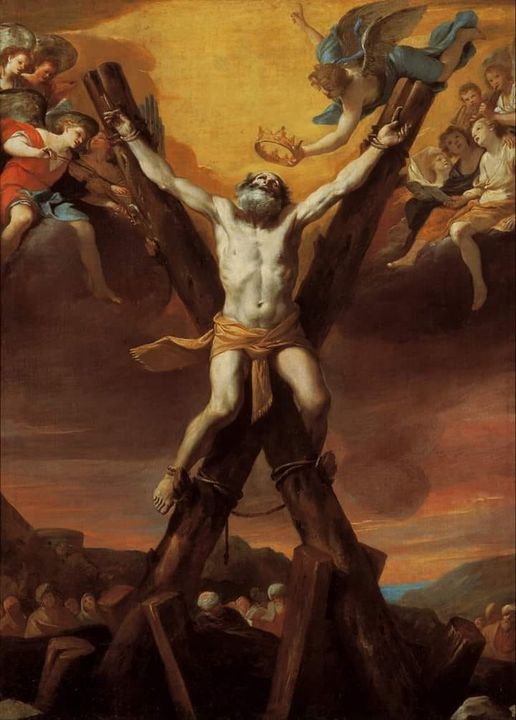Daily Saints – 3 November.
Feast of Saint Martin de Porres.
He is the patron saint of Barbers, Race Relations, Radio, Social Justice, bi-racial people, mixed-race people, black people, hair stylists, hairdressers, hotel-keepers, innkeepers, paupers, poor people, public education, public schools, state schools, public health, race relations, racial harmony, television.
Martin de Porres was born in Lima, Peru on December 9, 1579. He was the illegitimate son of Don Juan de Porres, a Spanish nobleman and adventurer. His mother Ana Velasquez was a freed woman of Panama, probably black but also possibly of indigenous stock, and a Spanish grandee of Lima, Peru. His parents never married each other.
Martin inherited the features and dark complexion of his mother. That irked his father. After the birth of a sister, the father abandoned the family. Ana Velasquez supported her children by taking in laundry.
“Father unknown” is the cold legal phrase sometimes used on baptismal records. “Half-breed” or “war souvenir” is the cruel name inflicted by those of “pure” blood.
Like many others, Martin might have grown to be a bitter man, but he did not. It was said that even as a child he gave his heart and his goods to the poor and despised.
Martin was reared in poverty, locked into a low level of Lima’s society. When Martin turned eight, his father had a change of heart and decided to claim his two children (publicly identified as mulatto, a term used for mixed-race children) in spite of the gossip to which it subjected him. He made sure that both were afforded a good education and had enough money for the family not to suffer privation.
At the age of twelve, Martin began an apprenticeship with a barber/surgeon named Marcel de Rivero. Martin learned how to cut hair and also how to draw blood—a standard medical treatment then—care for wounds, and prepare and administer medicines. He proved extremely skilful at this trade and soon customers, who at first were sceptical of the young coloured boy, came to prefer and ask for him.
After leaving home, Martin took a room in the house of Ventura de Luna. Always a devoted Catholic who spent much time in church, Martin begged his landlady for some candle stubs. She was curious about his activities and one night spied on him through a keyhole and witnessed Martin in a vigil of ecstatic prayer — a practice he would continue throughout his life.
After a few years, Martin applied to the Dominicans to be a “lay helper,” not feeling himself worthy to be a religious brother. In Peru, by law, all descendants of African or Indians were not allowed to become full members of religious orders. After nine years, the example of his prayer and penance, charity and humility, led the community to request him to make full religious profession. The prior Juan de Lorenzana decided to disregard the law restricting Martin based on race.
However, not all of the members in the Holy Rosary were as open-minded as Lorenzana; Martin was called horrible names and mocked for being illegitimate and descending from slaves.
Martin continued to practice his old trades of barbering and healing and performed many, many miraculous cures. He also took on kitchen work, laundry, and cleaning. His relationship with his brothers was tinged by their curiosity and occasional pranks. For example, just before the meal was to be served, they would hide the potholders and Martin would have to lift the scalding pots with his bare hands. Yet never once did his fingers get burned!
Martin frequently insisted on performing such hard and menial tasks as caring for the Order’s horses in the evenings, even when informed that servants were available for these chores. He would argue that the servants were tired from their day’s work while he, Martin, had done very little. He also extended his healing gifts — going to the servants’ quarters and treating their ailments.
Many of his nights were spent in prayer and penitential practices; his days were filled with nursing the sick and caring for the poor. It was particularly impressive that he treated all people regardless of their color, race, or status. He was instrumental in founding an orphanage, took care of slaves brought from Africa, and managed the daily alms of the priory with practicality, as well as generosity. Over much criticism, he insisted that the school staff be well-paid so that they would give their best service.
He became the procurator for both priory and city, whether it was a matter of “blankets, shirts, candles, candy, miracles or prayers!” When his priory was in debt, he said, “I am only a poor mulatto. Sell me. I am the property of the order. Sell me.”
Side by side with his daily work in the kitchen, laundry, and infirmary, Martin’s life reflected God’s extraordinary gifts: ecstasies that lifted him into the air, light filling the room where he prayed, bi-location, miraculous knowledge, instantaneous cures, and a remarkable rapport with animals.
His charity extended to beasts of the field and even to the vermin of the kitchen. He would excuse the raids of mice and rats on the grounds that they were underfed; he kept stray cats and dogs at his sister’s house.
Martin became a formidable fundraiser, obtaining thousands of dollars for dowries for poor girls so that they could marry or enter a convent. Many of his fellow religious took Martin as their spiritual director, but he continued to call himself a “poor slave.”
Martin had a great desire to go off to some foreign mission and thus earn the palm of martyrdom. However, since this was not possible, he made a martyr out of his body, devoting himself to ceaseless and severe penances. In turn, God endowed him with many graces and wondrous gifts, such as aerial flights and bilocation.
During an epidemic in Lima, many of the friars in the Convent of the Rosary became very ill. Locked away in a distant section of the convent, they were kept away from the professed. However, on more than one occasion, Martin passed through the locked doors to care for the sick. However, he became disciplined for not following the rules of the Convent, but after replying, “Forgive my error, and please instruct me, for I did not know that the precept of obedience took precedence over that of charity,” he was given full liberty to follow his heart in mercy.
He also possessed spiritual wisdom, demonstrated in his solving his sister’s marriage problems, raising a dowry for his niece inside of three days’ time, and resolving theological problems for the learned of his Order and for Bishops.
He lived in self-imposed austerity, never ate meat, fasted continuously, and spent much time in prayer and meditation with a great devotion to the Holy Eucharist. He was the friend of Saint John de Massias and Saint Rose of Lima.
In January of 1639, when Martin was 60-years-old, he became very ill with chills, fevers and tremors causing him agonizing pain. He would experience almost a year full of illness until he passed away on November 3, 1639.
Nearly all Spanish America calls him the Rats’ Saint because they say that his picture, if placed in the haunts of rats and mice, speedily causes these animals to disappear. In his convent in Peru the sacristan complained that the rats gnawed away his things, and proposed to destroy the disagreeable visitors with poison. Brother Martin dissuaded him from this cruelty. He then called all these little creatures and put a basket which he was holding upon the ground, and when they had all scrambled into the basket he carried them into the garden, promising to look to them every day, if they would cease from ravaging the provisions of the monastery. This is why he is represented with a basket in his hand surrounded by rats, either that he is about to feed them or to take them from the sacristy and gather them in the garden, in order to supply them with the leavings of the house. The Blessed Martin of Porres is invoked against rats.
“Everything, even sweeping, scraping vegetables, weeding a garden and waiting on the sick could be a prayer, if it were offered to God.”
“Compassion is preferable to cleanliness: with a little bit of soap I can clean my bed, but think of the flood of tears I would require to clean from my soul the stain that harshness against this unfortunate would leave.”
